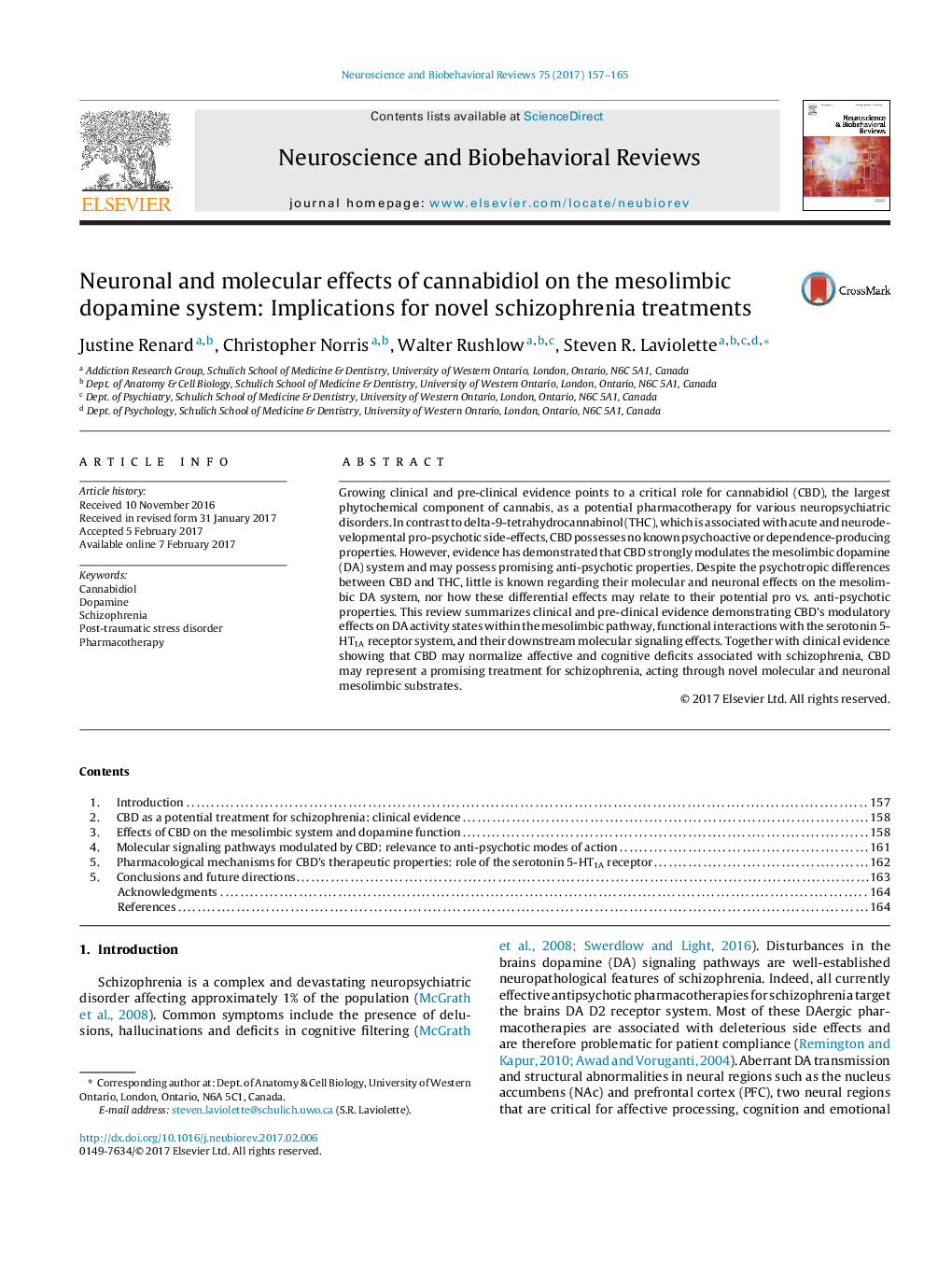| Article ID | Journal | Published Year | Pages | File Type |
|---|---|---|---|---|
| 5043506 | Neuroscience & Biobehavioral Reviews | 2017 | 9 Pages |
â¢Cannabinoid compounds found in marijuana have complex effects on neuropsychiatric disorders.â¢Evidence demonstrates differential roles for delta-9-tetrahydrocannabinol (THC) vs. cannabidiol (CBD) in regulating the mesolimbic dopamine system.â¢THC and CBD produce opposing molecular and neuronal effects on the mesolimbic dopamine system.â¢The differential effects of THC and CBD may underlie their pro vs. anti-psychotic clinical properties.
Growing clinical and pre-clinical evidence points to a critical role for cannabidiol (CBD), the largest phytochemical component of cannabis, as a potential pharmacotherapy for various neuropsychiatric disorders. In contrast to delta-9-tetrahydrocannabinol (THC), which is associated with acute and neurodevelopmental pro-psychotic side-effects, CBD possesses no known psychoactive or dependence-producing properties. However, evidence has demonstrated that CBD strongly modulates the mesolimbic dopamine (DA) system and may possess promising anti-psychotic properties. Despite the psychotropic differences between CBD and THC, little is known regarding their molecular and neuronal effects on the mesolimbic DA system, nor how these differential effects may relate to their potential pro vs. anti-psychotic properties. This review summarizes clinical and pre-clinical evidence demonstrating CBD's modulatory effects on DA activity states within the mesolimbic pathway, functional interactions with the serotonin 5-HT1A receptor system, and their downstream molecular signaling effects. Together with clinical evidence showing that CBD may normalize affective and cognitive deficits associated with schizophrenia, CBD may represent a promising treatment for schizophrenia, acting through novel molecular and neuronal mesolimbic substrates.
